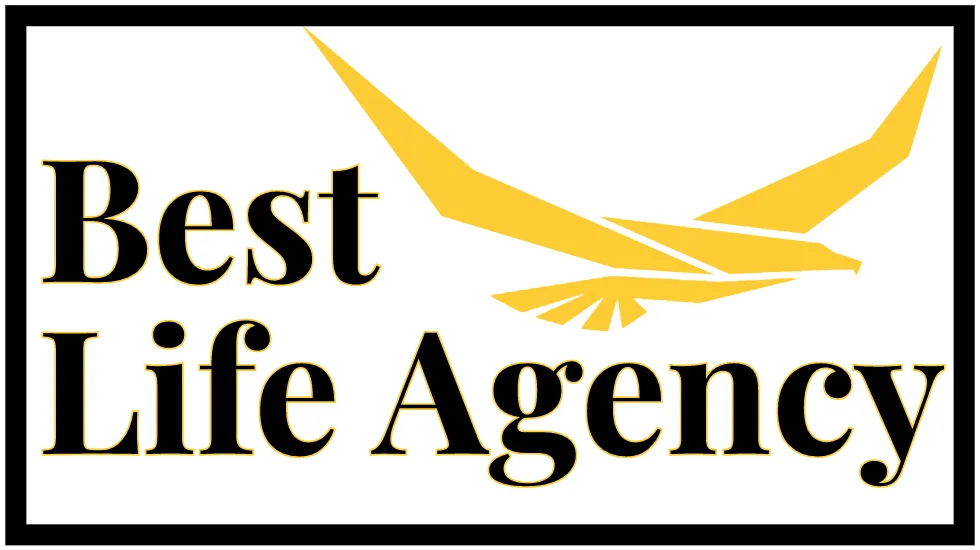
C17 - Mastering Compliance: Navigating the Regulatory Maze of Life Insurance
Mastering Compliance: Navigating the Regulatory Maze of Life Insurance
Introduction:
Ever felt like you’re trying to solve a Rubik's Cube in the dark when dealing with life insurance regulations? You’re not alone. The regulatory landscape of the life insurance industry is as complex as it is crucial, acting as both a safeguard for clients and a guidebook for agencies. With humor aside, navigating this maze is no small feat, yet mastering it is not just about avoiding pitfalls; it’s about building trust, ensuring operational integrity, and securing long-term success. Let's embark on a journey to demystify regulatory compliance and turn it from a daunting task into a strategic advantage.
Highlights:
Regulatory Landscape Awareness:

It’s like being a weather forecaster for compliance, predicting shifts and preparing accordingly to protect your agency’s operations and client interests.
Compliance Infrastructure:
Constructing a fortress of policies, procedures, and systems ensures your agency stands resilient against the tempests of regulatory change.
Training and Education:
Equipping your team with compliance knowledge is akin to handing them a map in the regulatory maze, ensuring everyone moves in unison towards compliance.
Audits and Assessments:
Regular audits act as your agency's health check-ups, identifying areas for improvement and keeping the pulse on compliance.
In-Depth Analysis:
Peering deeper into the compliance kaleidoscope, we see that integrating risk management and leveraging technology are not mere strategies but essential cogs in the machinery of a successful life insurance agency. TrustGuard Insurance exemplifies this approach, turning regulatory compliance into a dynamic asset rather than a static obligation. Through proactive measures, continuous education, and technological prowess, TrustGuard not only navigates the compliance landscape but also charts new territories of operational excellence.
Real-World Examples:
TrustGuard Insurance: A Case Study in Regulatory Excellence
TrustGuard Insurance stands as a beacon of regulatory compliance, its dedication illuminating the path for others in the industry. By fostering a culture of compliance, investing in technology, and maintaining open communication with stakeholders, TrustGuard has transformed compliance from a challenge into a cornerstone of its operational strategy. This commitment has fortified TrustGuard's reputation, minimized legal risks, and deepened trust with clients and regulators alike.
Practical Applications:
Develop a Proactive Compliance Team:
Cultivate a dedicated team to monitor, interpret, and act on regulatory changes, ensuring your agency is always a step ahead.
Invest in Compliance Technology:
Utilize software to streamline compliance tasks, from monitoring changes to managing documentation, making compliance more efficient and less error-prone.
Prioritize Compliance Education:
Regularly update your team's training on the latest regulatory developments and compliance practices to maintain a knowledgeable and agile workforce.
Conclusion:
Mastering the regulatory environment is an ongoing journey, one that requires vigilance, adaptability, and commitment. By viewing compliance not as a hurdle but as a strategic asset, life insurance agencies can protect their clients, fortify their operations, and carve out a competitive edge in the market. The story of TrustGuard Insurance serves as a powerful reminder of the tangible benefits that a strong compliance culture can bring.
Call to Action:
Now, we turn to you, the navigators of the regulatory maze. How does your agency approach compliance, and what strategies have you found effective? Share your experiences and insights below. Let’s foster a dialogue that elevates the importance of compliance and encourages a collective move towards a more transparent and trustworthy industry.
FAQs
Q: Why is it important for life insurance agencies to stay informed about regulatory changes?
A: Staying informed about regulatory changes is crucial because it ensures that agencies operate within legal frameworks, protecting client interests and sustaining long-term success. It's like navigating a constantly changing maze; being aware of the layout prevents missteps that can lead to penalties or damage to reputation.
Q: What is the role of a compliance infrastructure in a life insurance agency
A: A robust compliance infrastructure acts as the agency's backbone, supporting every aspect of operations with policies, procedures, and systems designed to ensure adherence to legal and ethical standards. It's akin to having a built-in GPS that guides the agency through the complex landscape of regulations.
Q: How does training and education contribute to an agency's compliance?
A: Regular training and education ensure that all staff are up-to-date with the latest regulatory requirements and compliance processes. This shared knowledge fosters a culture of compliance within the organization, making it easier to navigate the regulatory environment collectively.
Q: What purpose do audits and assessments serve in regulatory compliance?
A: Audits and assessments are the agency's diagnostic tools. They help assess the current level of compliance, identify gaps, and implement corrective actions. Think of them as regular health check-ups that keep the agency fit and in good standing.
Case Study: TrustGuard Insurance
Challenge:
In the ever-evolving landscape of life insurance regulations, TrustGuard Insurance faced the daunting task of maintaining compliance while also aiming to exceed regulatory expectations.
Approach:
TrustGuard implemented a comprehensive compliance program centered around a dedicated team of compliance professionals. This team was responsible for staying ahead of regulatory developments and ensuring that the agency's policies and practices were not just compliant, but ahead of the curve.
Proactive Monitoring:
By keeping a vigilant eye on upcoming regulations, TrustGuard could adapt its operations proactively.
Comprehensive Education:
Regular workshops and training sessions on compliance topics ensured that all staff were well-versed in the latest regulatory changes and compliance strategies.
Advanced Technology:
Utilizing a compliance management system allowed for efficient tracking of compliance activities, audits, and training.
Results:
TrustGuard's strategic focus on regulatory compliance paid off by minimizing legal risks, enhancing its reputation, and building strong relationships with both regulators and clients. This proactive stance on compliance demonstrated the strategic value of embedding a strong compliance culture within the agency.
Emerging Trends
Increased Use of Technology:
Agencies are increasingly leveraging technology, such as compliance management systems, to automate and streamline compliance processes. This includes the use of AI for monitoring regulatory changes and ensuring adherence.
Integration with Risk Management:
Compliance is being more tightly integrated with overall risk management strategies, providing a holistic approach to navigating regulatory environments.
Greater Emphasis on Data Protection:
With the rise of digital data, there's a growing focus on regulations related to data protection and privacy, requiring agencies to adopt stringent data security measures.
Sustainability and ESG Compliance:
Environmental, Social, and Governance (ESG) criteria are becoming part of regulatory considerations, pushing agencies to incorporate sustainable practices into their operations.
Resources
Regulatory Compliance in Life Insurance: A Modern Approach
This comprehensive guide offers insights into navigating the regulatory environment, available at www.moderncomplianceguide.com.Compliance Management Solutions for Insurance
Explore a range of technology solutions designed to simplify compliance tasks for insurance agencies, available at www.compliancemanagementsolutions.com.Online Compliance Training for Insurance Professionals
Access online courses aimed at enhancing understanding and implementation of regulatory compliance within the insurance industry, available at www.insurancecompliancetraining.com.TrustGuard Insurance Compliance Case Study
Delve into the detailed case study of TrustGuard Insurance's successful compliance strategy and how it can be applied to other agencies, available at www.trustguardcompliancecasestudy.com.Zing Business Systems (website: zingacp.com/home) revolutionizes how businesses talk to customers by turning missed calls into texts, which helps close the communication gap. This technology saves potential sales and improves customer interaction across multiple channels. It streamlines customer management and tracks important data for marketing and sales. Enhance your customer service and boost your online marketing with Zing and don't lose customers from missed calls.
Start your own blog checklist:
Here is a quick checklist to get you started with you website blow. Remember imperfect action beats inaction, get started and keep publishing.
Create your blog page then add the blog element
Add the blog element to your page and select if you want compact or list view
Start planning your blog topics by Identifying what resonates with your audience. If you are stuck you can use sites like - https://answerthepublic.com/
Create an outline serves your company goals.
Write conversationally, like if you were telling a story to a friend
Pick a catchy title.
Use several media types (gif, short video, or image) to deliver your messages.
Use data to back up claims or ideas - make sure to cite all sources❗
Have a call to action and or give your audience something to walk away with.
Take 30 minutes to edit your post.
Frequently Asked Questions
Common Questions Answered for your convenience.
What types of life insurance do you specialize in?
At Best Life Insurance, we offer a wide range of life insurance plans to suit our clients' varying needs. These include Term Life Insurance, which is an affordable option providing a payout to your beneficiaries if you die within the policy term, ensuring they're financially secure. Whole Life Insurance gives you coverage for life and builds cash value that you can use if necessary. Indexed Universal Life Insurance (IUL) is a flexible policy where the cash value can increase based on a stock market index's performance, offering growth potential.
How do I choose the right life insurance policy for me?
Choosing the right life insurance policy involves assessing your financial situation, long-term goals, and the needs of your dependents. Our experienced agents work closely with you to understand your unique circumstances, helping you compare the benefits of different policies and guiding you to make an informed decision that aligns with your financial planning goals.
What is the process for applying for life insurance?
Applying for life insurance with us is straightforward. Initially, you'll have a consultation with one of our licensed agents to discuss your needs and options. Following this, you'll complete an application that includes health, lifestyle, and financial questions. Depending on the policy, a medical exam may be required. Once your application is reviewed and approved, we'll finalize the policy details and issue your coverage.
Can I change my life insurance policy once it's in place?
Yes, adjustments can often be made to your life insurance policy after it's in place. This might include changing your coverage amount, adjusting beneficiaries, or, in some cases, converting from term to permanent coverage. Our agents are here to discuss your needs and help facilitate any changes to ensure your policy continues to meet your evolving needs.
What factors affect my life insurance premiums?
Life insurance premiums are influenced by several factors, including the type of policy you choose, the amount of coverage, your age, health status, lifestyle choices (such as smoking), and your family medical history. Our agents can provide personalized quotes and explain how each factor may impact your premiums.
How does a life insurance payout work, and who can be a beneficiary?
A life insurance payout, or death benefit, is the amount paid to your designated beneficiaries upon your death. You can nominate anyone as a beneficiary, including family members, friends, or organizations. The payout can be used by beneficiaries for any purpose, such as covering living expenses, paying off debts, or funding education. Our policies ensure a streamlined claims process, aiming for a quick and efficient payout to support your beneficiaries during a difficult time.
